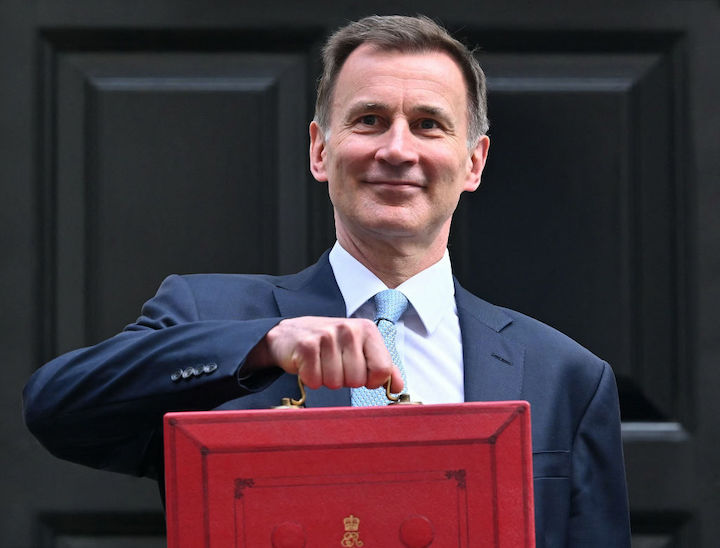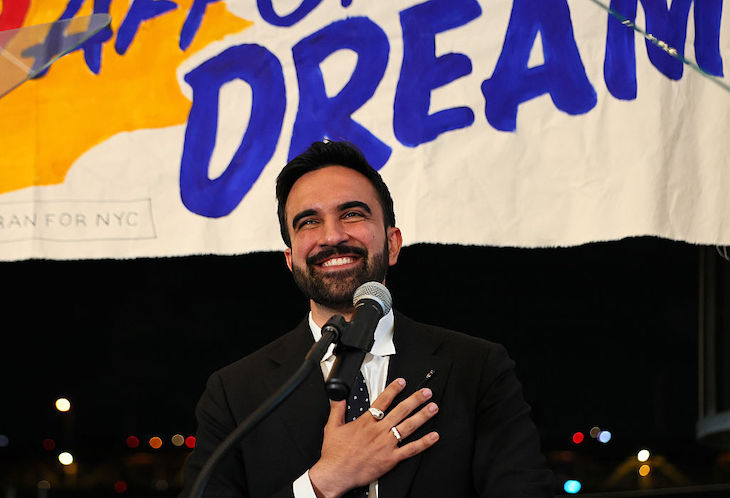As Rachel Reeves prepares what is potentially the most difficult Budget in a generation, a question occurs: what if the Conservatives had, somehow, won the election?
Historians hate counterfactuals, considering them unhelpful parlour-games. Personally, I enjoy a good ‘what if’ – not least because they can help put current political events in context.
In that spirit, I’m pleased to present here the October 2024 Budget speech that Chancellor Jeremy Hunt might give in a parallel universe where the Conservatives remained in office after the election.
As well a Budget address, this is also my resignation speech
‘Madam Deputy Speaker, it gives me no great pleasure to present this Budget statement to the House today. To be frank, it’s awful and I wish I wasn’t doing it. To be even more frank, I never expected to be here today doing this – which anyone who has followed the last few years of fiscal statements would know.
‘Honourable members should cast their minds back just few months to March when I gave my last Budget statement. You remember, the one with the nice cuts in national insurance contributions that – to what is now my deep regret – helped my party cling to power in the general election.
‘Well, Madam Deputy Speaker, now the time comes to pay the bill for those promises, and what a bill it is. One way to find the cash needed to fund such commitments is to cut spending, a cause popular with many of my colleagues. For their benefit, I should spell out what funding existing commitments while vaguely attempting to bring down borrowing will mean for public services.
‘On a per-capita basis, current spending by unprotected departments will fall by 13 per cent, in real terms, between the current fiscal year and 2028/29. That’s £19 billion that I’m going to have to cut from things such as prisons, the police and local councils. We’ve already had to release some prisoners early, but this Budget points to a simpler solution to overcrowding: we’ll have to close some prisons outright. And you don’t even want to know what happens to social care – although the elderly will at least keep their winter fuel payments, I suppose.
‘Members with longer memories will remember a previous administration’s “austerity” budgets. Well, the cuts required to pay for my March tax cuts amount to about two-thirds of all the cuts that the former member for Tatton delivered when he was in my job. If you’re up there in the press gallery, George, do remind me how that worked out?
‘And that’s not all, Madam Deputy Speaker. As well as those frankly stonking cuts to departmental budgets, I’ll also have to cut public sector investment by about £25 billion over this parliament. If you thought the UK’s performance on investment has been dismal recently, you ain’t seen nothing yet.
‘Of course, I could find some of the necessary money elsewhere, by raising tax. Perhaps I could reverse the NI cuts that we made just before the election – and go down in history as a liar? More tax on inheritances and share sales, perhaps? No Madam Deputy Speaker, my right honourable friend the Prime Minister has made clear to me that tax rises are not an option. He says true Conservatives will always prefer a smaller state – although sadly that state soon won’t be able to keep criminals in jail or provide basic care for the elderly.
‘No, Madam Deputy Speaker, I will not give way to barracking members claiming to be shocked by any of this, that this is some sort of surprise. It is nothing of the sort, because the sheer fiscal horror facing the country in autumn 2024 was perfectly clear from my Spring Statement. It was predictable and predicted. In fact, let me quote to those critics what Mr Paul Johnson of the Institute for Fiscal Studies said after my Budget in March this year:
“The combination of high debt interest payments and low forecast nominal growth means that the next parliament could well prove to be the most difficult of any in 80 years for a chancellor wanting to bring debt down. Even stabilising debt as a fraction of national income is likely to mean some eye-wateringly tough choices – and we are talking tens of billions of pounds worth of tough choices – on tax and spending.”
‘Madam Deputy Speaker, some people will say that these cuts I have outlined are fantasies, that no government can possibly deliver such brutal fiscal tightening in a country that is already pig sick of crumbling services and an economy starved of investment. Unfortunately for His Majesty’s Government, some of those people work in the bond markets, which is why gilt yields are rising even as I speak – because the markets simply do not believe that I can do the things implied by the March Budget.
‘Those markets are now betting that I will have to abandon my fiscal tightening and instead borrow heavily just to keep the lights on. The cost of servicing a national debt that is now over 100 per cent of GDP will only grow, undermining both services and investment in the economy’s productive capacity. The UK will remain stuck in its economic doom-loop of low growth, weak public finances and crumbling services and ever-higher borrowing costs.
‘Madam Deputy Speaker, you may be wondering why I am smiling as I deliver this frankly miserable Budget. No Chancellor could possibly enjoy trying to unravel the amazing fiscal mess Britain finds itself in, so why am I so pleased?
‘Well Madam Deputy Speaker, it is because when I sit down I will no longer be Chancellor. As well a Budget address, this is also my resignation speech, because you’d have to be nuts to try to deliver this Budget, which is why I cannot possibly commend it to the House.
‘Instead, I can only hope that someone else out there is crackers enough to want a job where all the options are bad. Whoever they are, good luck to them finding a way out of this nightmare.’








Comments